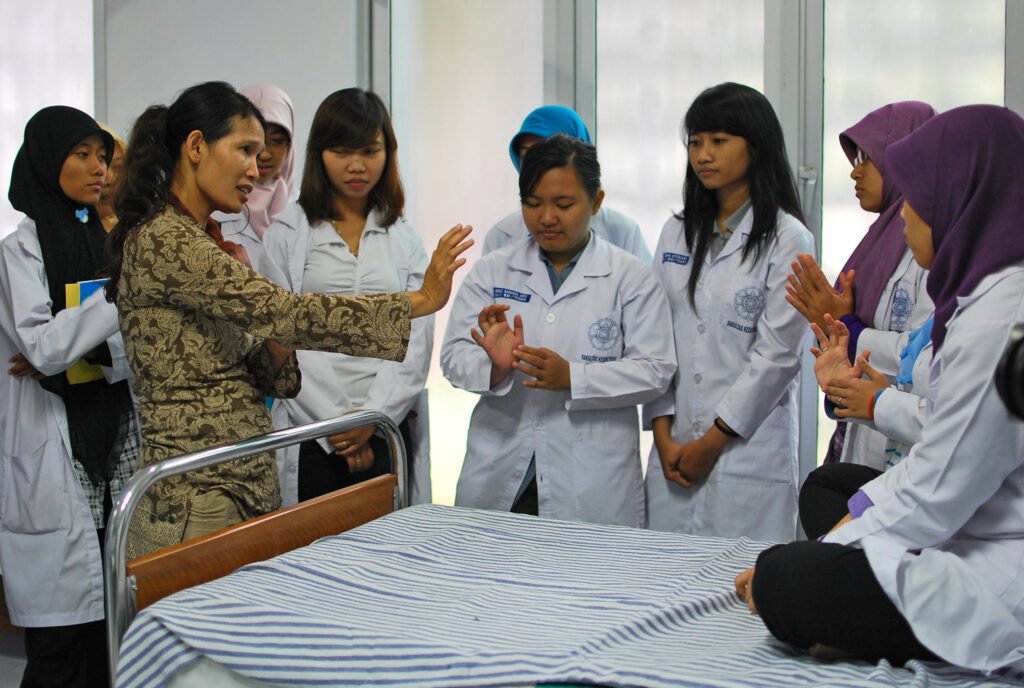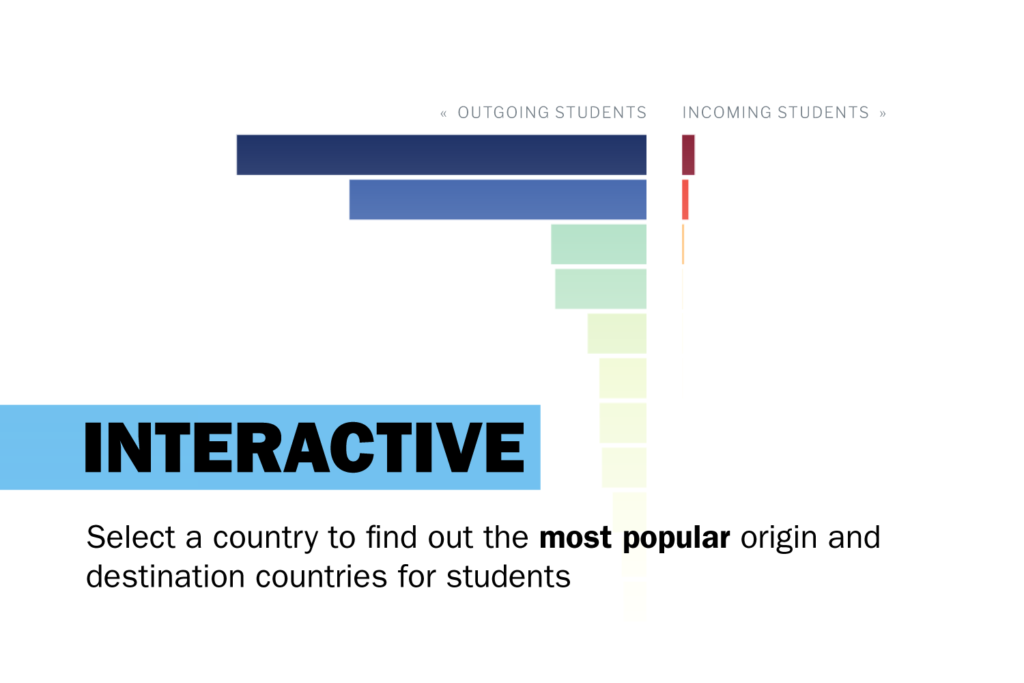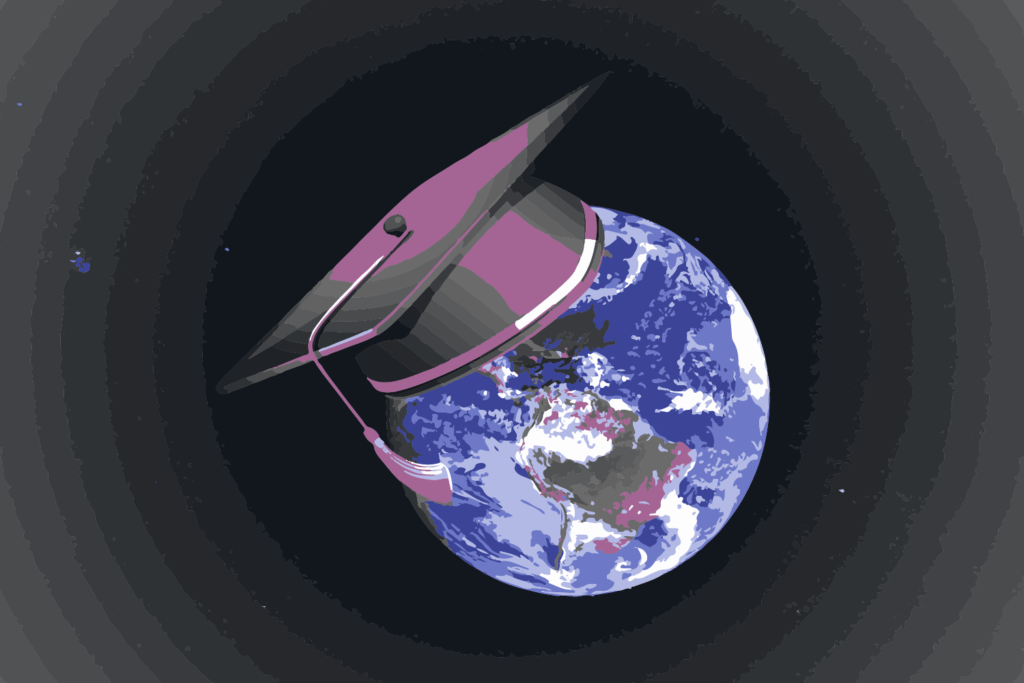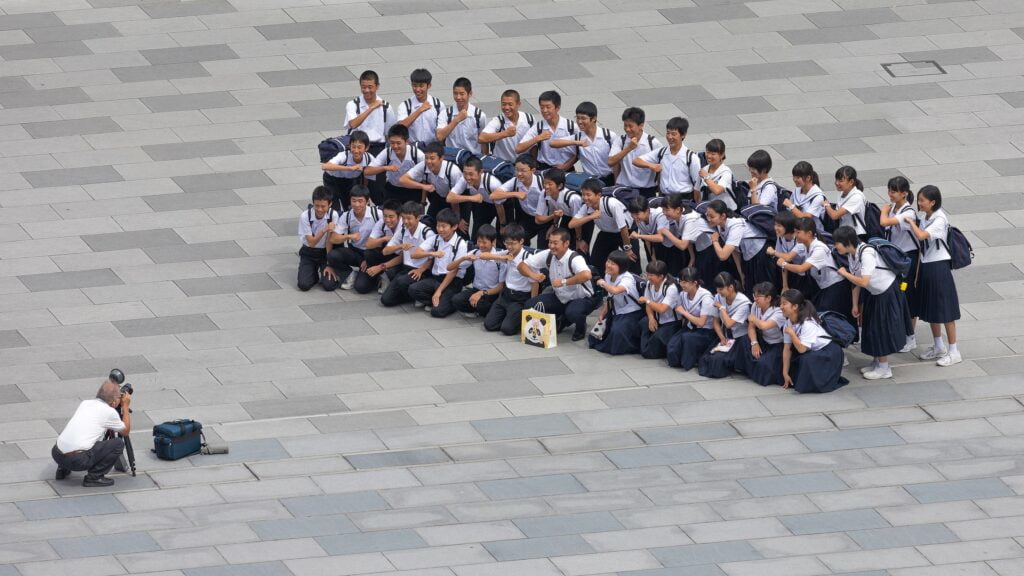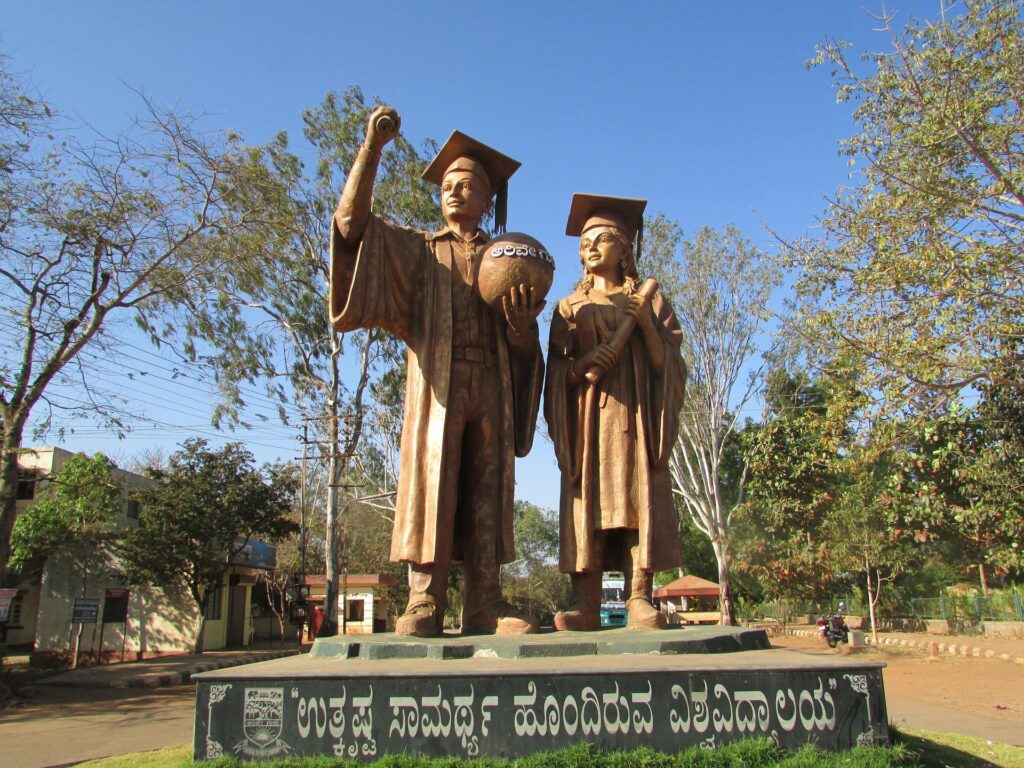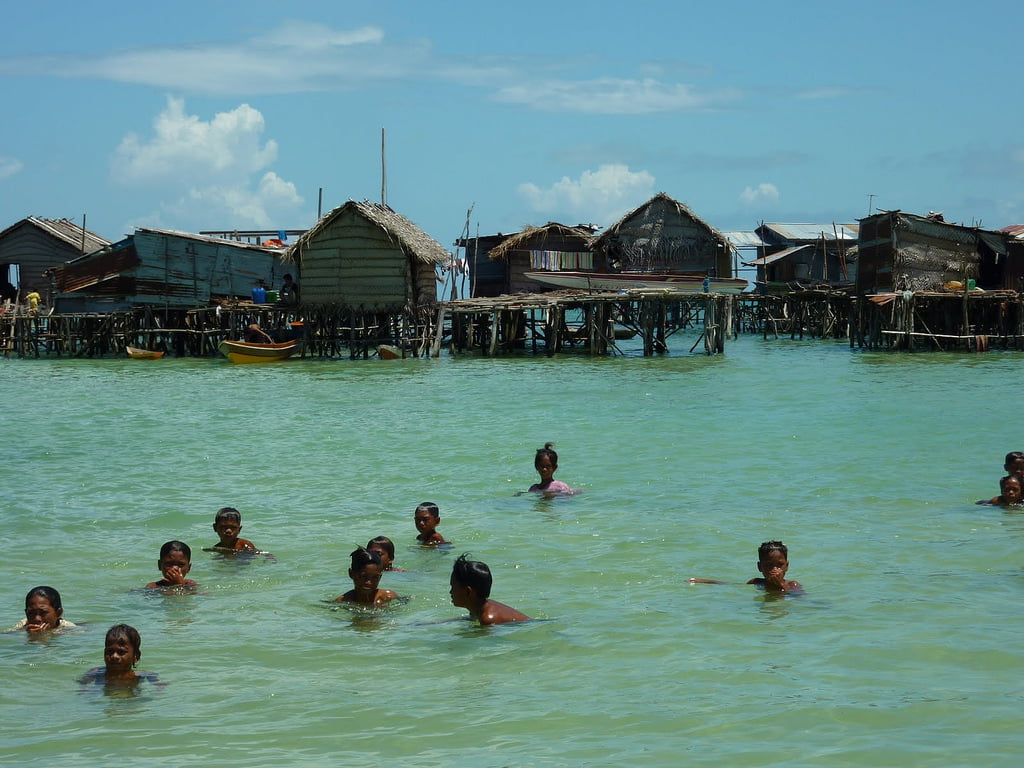Interview: Professor Adam Habib on higher ed, imperialism and the global brain drain
Editors Andrew Jaspan and Bharat Bhushan of 360info spoke to Professor Adam Habib about the challenges and possibilities of globalised higher education.
 Professor Adam Habib was formerly vice-chancellor at the University of the Witwatersrand, Johannesburg, South Africa: Christophe Hendrickx. CC-BY-SA 4.0: https://commons.wikimedia.org/w/index.php?curid=57819249#/media/File:Great_Hall_Witwatersrand.JPG
Professor Adam Habib was formerly vice-chancellor at the University of the Witwatersrand, Johannesburg, South Africa: Christophe Hendrickx. CC-BY-SA 4.0: https://commons.wikimedia.org/w/index.php?curid=57819249#/media/File:Great_Hall_Witwatersrand.JPG
Editors Andrew Jaspan and Bharat Bhushan of 360info spoke to Professor Adam Habib about the challenges and possibilities of globalised higher education.
What do you think is wrong with global education?
There’s a lot wrong. In many parts of the developing world, their institutions are being eroded by the very nature of the ‘global academy’. For example, scholarships provided largely by rich-country universities and governments go to talented people from around the world, allowing them to travel to study. Then, they don’t go back. Many of those do so in their 20s and 30s – precisely the period in life when people tend to develop relationships and have children.
The net effect is that brain drain is enabled rather than disabled. Developing states lose people in large numbers and, as that happens, you begin to erode institutional capacities.
When you talk about undermining institutional capacity, what do you mean?
I mean that you don’t enable the kinds of crucial skilled personnel required to deliver on major public services within developing countries and deal with ways to mitigate the major challenges of our time such as pandemics and climate change. I’m speaking about those countries needing the kinds of professionals required to run modern economies and societies, through either public institutions like hospitals, schools, universities, governments, governmental departments, or private facilities like private companies, businesses, manufacturing industries, IT companies, startups etc.
This is why if you take a place like South Africa, which I know well, you have both a skills deficit and an unemployment crisis. You don’t have the people trained for the jobs that are available.
This is a serious problem. Other than Singapore and a couple of other places, such as post-2007 China, developing countries are losing large numbers of key people to run and develop their critical infrastructure, services and economy.
In India, the numbers suggest that more than 80 percent of students who go to study overseas don’t return home. There’s no data about Africa, but I would think that it would be worse than India, just anecdotally. And so you’ve got a serious challenge that, at the very moment those countries need the brightest and best, you’re weakening their institutions and human capabilities.
Some countries can sustain this. India and China, both with 1.4 billion people, can sustain the brain drain because they have scale. Places that are much smaller — South Africa, with 50 million people, and many other parts of the African continent and other societies — don’t have that scale, and so the drain has a much more dramatic impact on institutional capacities.
All the substantive challenges of our time have a transnational character, whether it’s pandemics or climate change, inequality or social and political polarisation. To resolve those challenges, we’ll need to ensure that the developing world has intellectual capacities and skills. You’re going to need them as much in the Philippines as in New York or London.
Any research will tell you that the world’s key transnational problems require not only world-class global science and technology but also local knowledge.
For example, how you structure a city map in San Francisco is fundamentally different from how you structure a city map in Nairobi simply because of the spatial structure of Nairobi. It operates in a different environment, and its cultural milieu and naming of streets don’t work in the same way. It has shantytowns too, and all these kinds of things lend themselves to a very, very different design.
Linking global science and local knowledge is needed, and at the moment the global education system undermines that.
Do you think that universities in the West use foreign students to cross-subsidise domestic students?
Absolutely. Not all Western countries, but if you’re looking at the United States, the United Kingdom, Australia and, frankly, a number of Western European countries, there’s a massive cross-subsidisation.
There is no way British higher education could survive if the supply and fees from foreign students suddenly dried up. In fact, I would argue 90 percent of the universities would be declared bankrupt overnight.
I’ve said this in the United Kingdom, so I’m not saying anything new: it’s unsustainable, and sooner or later it’s going to throw them into a crisis.
Given governments are either not funding universities or reducing their financial assistance to universities, is it wrong for universities to be modelled as commercial enterprises and profit from the demand?
It depends on what lens you are asking through. If you’re asking me as the vice-chancellor or the director of SOAS, a commercial model is the only viable model given the existing funding constraints.
If you’re asking whether this is good for the global community to address pandemics, climate change etc, I’m saying that we’re acting in the short-term interest and compromising our long-term future.
What is the best way of preventing ‘brain drain’ from the developing countries to the developed world?
Recently, the European Union and the African Union came together. They decided to put resources into getting European and African universities to work together in joint research centres, in joint PhD training, where you share staff, you co-curriculate and you co-credential. The Guild of European Universities and the African Research Universities Alliance had been lobbying for this for two to three years.
This is a major shift for the Europeans; they are beginning to recognise that the existing model doesn’t work.
We’ve got to start thinking through innovating around this model that the Europeans and the Africans are starting to explore. How do we do it on a more substantive basis? There are hundreds of thousands of people who still can’t be trained at the appropriate level, and we don’t have enough educational capacity and institutions in the right places. But if we brought global and local together in a series of very innovative partnerships, we could create networks of institutions.
Partnerships can’t be structured at an individual level; it has to be thought of at an institutional level.
That means co-teaching, co-curriculating and co-credentialing. It means hosting research centres that are jointly owned by Northern and Southern partners in the developing world where Masters and PhD students can, from both sides, actually have internships and locate themselves on-site.
You won’t stop the brain drain, but you will mitigate its worst consequences. You’ll be training more, and then you’ll be creating the enabling conditions for people to move back, because ultimately people leave because there are no opportunities. As opportunities develop, people will begin to go back.
What would equitable partnerships in global education mean?
Some of this already exists, for example in public health. Ebola research centres are set up in West Africa; HIV/AIDS research centres are in South Africa, not in London. In public-health higher education they do this all the time. Why is it that we don’t do that in the social sciences, the commercial sciences and in parts of the humanities?
It’s also worth noting that the technological revolution enables us to do this at a fundamentally new scale. Instead of having 1000 people in a class, all lectures could be done online and the tutorials could be face-to-face. Those tutorials can take place in Delhi, Johannesburg, London and Melbourne simultaneously, based on the same lecture that is provided globally to all of those students.
There are ways to unravel the problem, but they are often only unravelled by governments when somebody fundamentally questions and shifts the system in its foundations. I’m not looking at this as a zero-sum game. You can also make shifts over periods of time. We shouldn’t see this as one or the other, but we do need a dramatic rethink of global higher education, particularly Western higher education.
Adam Habib has over 30 years’ academic, research and administration expertise, spanning five universities and multiple local and international institutions. He is currently professor of political science and director, SOAS University of London. Previously, he was vice-chancellor of the University of the Witwatersrand in Johannesburg. He is co-founder of the African Research Universities Alliance.
Originally published under Creative Commons by 360info™.


